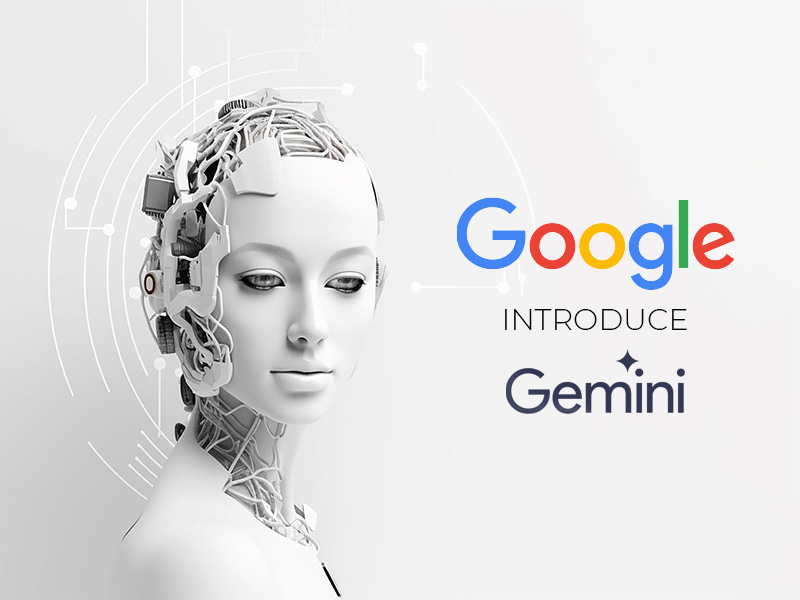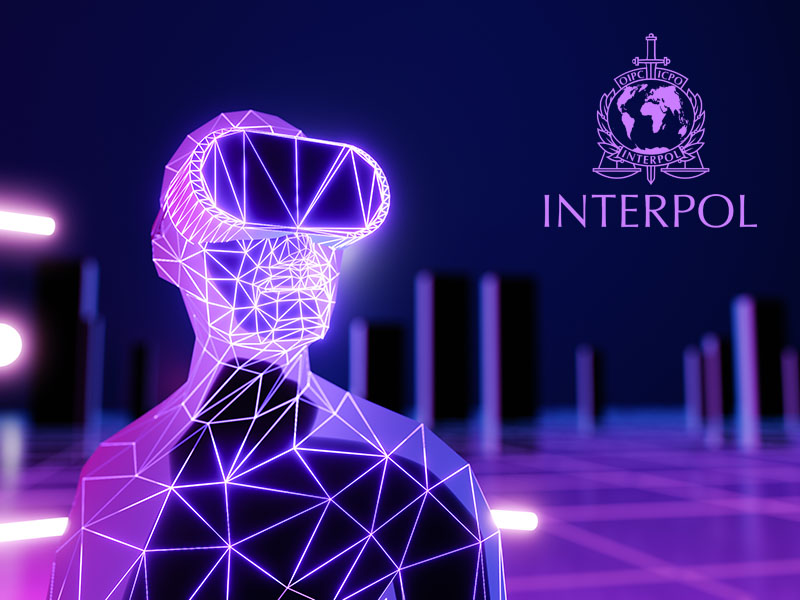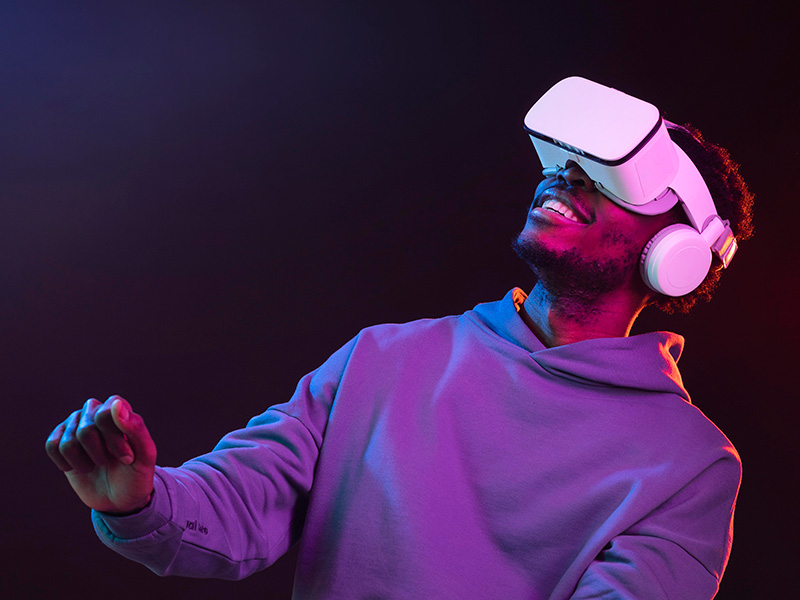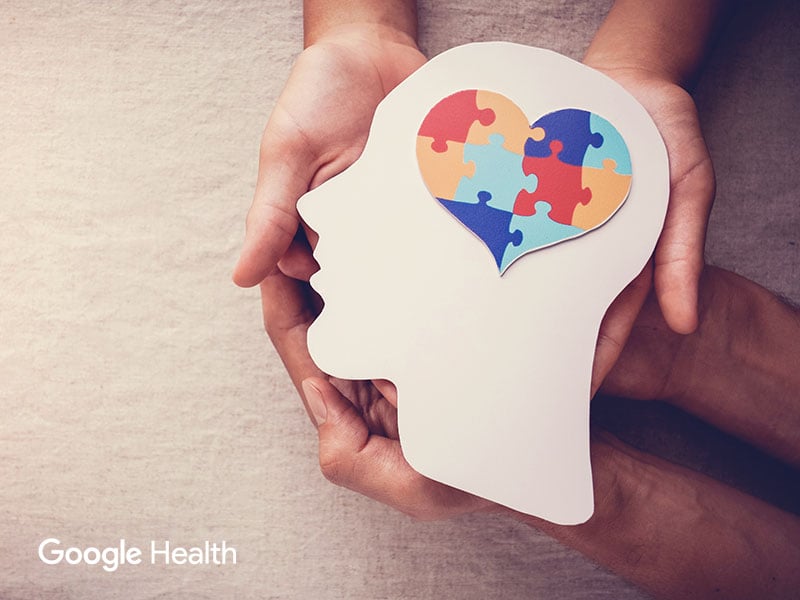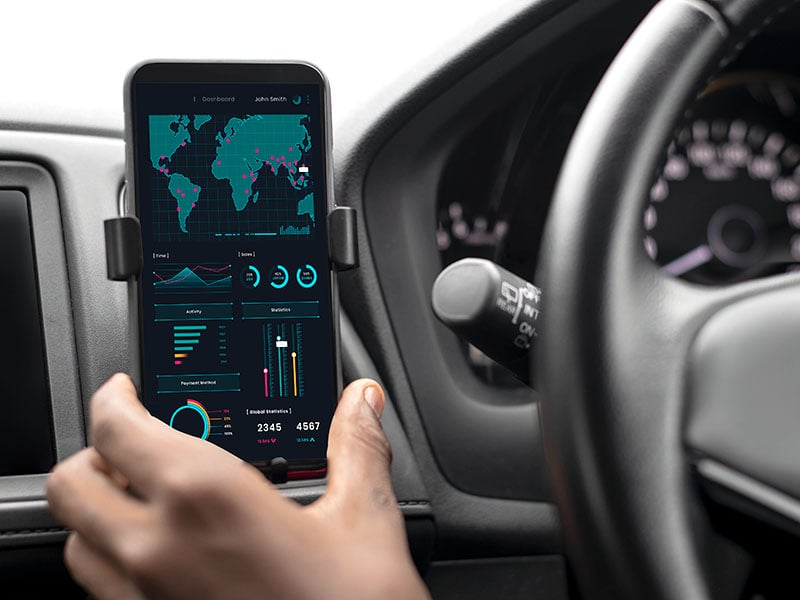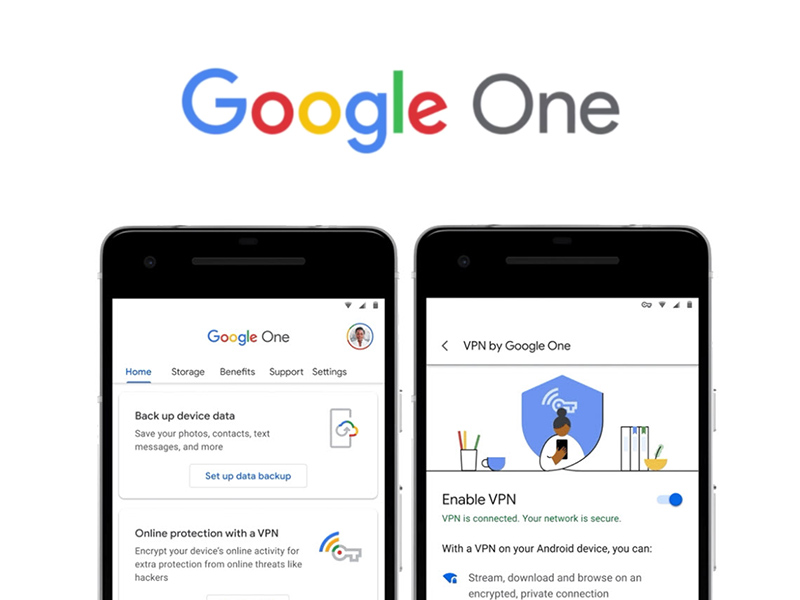Devolo
DevoloThe one thing that defines the German technology company Devolo is its commitment to bringing functional and efficient solutions to the smart grid industry. Since its founding in 2002, Devolo has been striving to give shape to the power grid of the future. This company offers communications devices for the industrial and home sector and manufactures high-performance, digitized, and user-friendly products for smart homes. Devolo is undoubtedly a driving force of innovation in digitization.
[ ... ]What is Bitcoin Halving and how does it affect the cryptocurrency?
25/02/2024The term "Halving" in the context of Bitcoin refers to a scheduled event in the cryptocurrency protocol, in which the reward for mining blocks is reduced by half. This event occurs approximately every four years and has a significant impact on the supply and demand of Bitcoin. During Halving, the number of new Bitcoins created per block is halved. This implies a decrease in the issuance rate of the cryptocurrency, which in turn can have an effect on the price and volatility of Bitcoin. Many analysts and experts are speculating about the long-term implications of the Halving and its influence on the cryptocurrency markets. Services related to Bitcoin Halving There are various types of services and tools related to Bitcoin Halving that can be beneficial for different actors in the cryptocurrency ecosystem. These services include: 1. Halving analysis and forecast This type of service provides detailed information about the past, present and future of the Bitcoin Halving. Through analysis and forecasting, it helps investors and cryptocurrency enthusiasts make informed decisions on how to position themselves before and after the event. 2. Bitcoin Mining As the reward in Bitcoin decreases, mining this cryptocurrency becomes more challenging. Bitcoin mining services offer solutions and advice to maximize mining efficiency and profitability, even in a low reward environment. 3. Financial advice related to Halving As the issuance rate of Bitcoin slows, investors may need to adapt their investment strategies. Financial advisory services specialized in cryptocurrencies and Bitcoin provide personalized recommendations and analysis to optimize investment performance in this context. 4. Development of tools for cryptocurrencies The Bitcoin Halving may generate changes in the cryptocurrency ecosystem, which may require the creation of new tools and solutions. Companies specialized in software development and applications related to cryptocurrencies can provide development and consulting services to adapt to these new demands. Bitcoin: Reward Reduction and Its Implications on the Cryptocurrency Ecosystem Bitcoin, the most famous and valuable cryptocurrency in the world, has periodically experienced an event known as a "reward reduction" or "Halving", which has significant implications on the cryptocurrency ecosystem. In this article, we will explore in depth what Bitcoin reward reduction is and how it affects both miners and investors. What is Bitcoin reward reduction? Bitcoin reward reduction is a scheduled event integrated into the cryptocurrency protocol. It occurs approximately every four years and consists of a halving of the reward miners receive for validating transactions and adding new blocks to the Bitcoin blockchain. Originally, when Bitcoin was launched in 2009, miners received a reward of 50 Bitcoins for each block mined. However, due to the reward reduction process, this amount has decreased over time. In 2012, it was reduced to 25 Bitcoins per block, in 2016 to 12.5 Bitcoins per block, and in 2020 it was reduced again to 6.25 Bitcoins per block. Implications for Bitcoin miners Bitcoin's reward reduction has a significant impact on mining the cryptocurrency. With each reduction, miners receive fewer Bitcoins for their work, which means less direct monetary reward. This may result in some miners leaving the Bitcoin network, especially those with higher electricity and mining equipment costs. On the other hand, those miners who manage to adapt and remain profitable even with a lower reward are rewarded with a larger share of the Bitcoin supply generated through mining. This concentration of Bitcoins in the hands of fewer miners can have effects on the decentralization and security of the network, since the number of active participants in the transaction validation process is reduced. Implications for investors and the price of Bitcoin Bitcoin's reward reduction also has implications for the price and supply of the cryptocurrency. As the issuance of new Bitcoins decreases, the supply in the market reduces. This may lead to higher relative demand if Bitcoin demand continues to grow or remains stable. In previous reward reduction events, a long-term increase in Bitcoin price has been observed. This is because the decrease in the supply of new Bitcoins can lead to greater perceived scarcity and therefore an increase in their value. However, it is important to note that the price of Bitcoin is highly volatile and can be influenced by a variety of external factors, so a continued increase after reward reduction cannot be guaranteed. Bitcoin's reward reduction is a key event in the life of the cryptocurrency and has implications for both miners and investors. As the number of new Bitcoins generated is halved, miners must adapt to remain profitable and the supply of Bitcoin on the market may decrease. However, this event can also have a positive impact on the price of Bitcoin in the long term. It is important to understand and take these factors into account when evaluating investment potential in Bitcoin and the cryptocurrency market in general. Bitcoin and limited supply: a unique combination Bitcoin has captured the attention of the financial world like no other cryptocurrency. One of its most notable features is its limited supply, meaning that only a finite number of bitcoins will be created in the world. This contrasts with traditional fiat currencies, which can be printed at the discretion of governments. How does Bitcoin limited supply work? Bitcoin was designed to have a total supply of 21 million coins. As new blocks are mined by users and added to the Bitcoin blockchain, new coins are generated and distributed as rewards to miners. However, this reward is halved in an event known as "Halving", which occurs approximately every four years. Halving ensures that the rate of issuance of new bitcoins decreases over time, following a predictable mathematical function. Currently, the reward per mined block is 6.25 bitcoins, but this number is expected to reduce further in the future. This controlled scarcity mechanism is a central part of Bitcoin's monetary policy. Advantages of Bitcoin Limited Supply Bitcoin's limited supply has several significant advantages: Sense of scarcity: The limitation in the supply of Bitcoin makes it a scarce and valuable asset. As it approaches its maximum supply, demand and price are expected to increase. Inflation Protection: Unlike fiat currencies, Bitcoin cannot be inflated or devalued at the discretion of governments. Its limited supply protects it from inflation and makes it a safe store of value. Monetary stability: With carefully controlled supply, Bitcoin offers greater monetary stability compared to national currencies, which can be affected by political and economic decisions. Challenges and debates surrounding the limited supply of Bitcoin Despite the advantages, Bitcoin's limited supply has also generated debates and challenges. Some argue that the scarcity of bitcoins could hinder its mass adoption as an everyday currency. Price volatility is also an issue of concern. Furthermore, the fact that only about 80% of all existing bitcoins have been mined raises questions about how the latest bitcoins will be distributed and how this will affect the network and its sustainability in the future. Bitcoin has revolutionized the financial world with its limited supply and unique monetary policy. Controlled and predictable scarcity is an essential part of its design, providing a solid alternative to traditional fiat currencies. Although limited supply can pose challenges and debates, it also offers significant benefits, such as a sense of scarcity, protection against inflation, and monetary stability. As Bitcoin continues to mature and its supply approaches its maximum limit, its value and relevance in the financial world continues to grow, leaving investors and enthusiasts with great anticipation about its future.
[ ... ]Google Integrates Gemini AI into Google Ads
29/01/2024Google has commenced the integration of Gemini's Artificial Intelligence (AI) into the conversational experience of its Google Ads service. This integration aims to assist marketing professionals in creating more effective advertising campaigns through the generation of specific content. Conversational Experience Empowered by Gemini Initially available for English-speaking advertisers in the United States and the United Kingdom in beta, this expansion will roll out globally in the coming weeks, with plans to include other languages in the near future. By providing the website's URL, the AI generates relevant advertising content, including creative pieces and keywords, facilitating the creation of optimized campaigns. Suggestions for Tailored Images in Captivating Visual Campaigns In an upcoming development, Google Ads' conversational experience will also include the ability to suggest images tailored to the campaign through the use of generative AI and materials from the advertiser's landing page. This feature, scheduled for implementation in the coming months, will provide advertisers with a comprehensive solution for creating visually appealing campaigns. Google has emphasized that all images generated by AI in Google Ads will be clearly identified, thanks to the SynthID technology that places an invisible watermark accompanied by open standard metadata.
[ ... ]Vodafone
VodafoneSince the year of its creation, 1985, Vodafone has been a global brand of reference in the super-competitive telecommunications sector. The company, from its headquarters in England, is not only a leading technology multinational operating worldwide (except basically in America), but also a strong proponent of innovation. Touching all the keys and areas of this immense sector, Vodafone continues to create products and devices to keep society connected at all levels and to continue building a digital future for and by people.
[ ... ]European companies are facing million-euro losses due to connectivity issues
12/06/2023A study by Cradlepoint reveals that European businesses could be losing milions of euros every week as a result of connectivity problems. According to the State of Connectivity in Europe report, conducted in collaboration with Censuswide, 74% of companies experience at least 2 hours of connectivity loss each week. One hour of downtime can be valued at 332,600 euros, according to Statista. These connectivity issues have also generated additional operating costs for 47% of the surveyed companies, and 33% have missed out on business opportunities due to these problems. Furthermore, the education sector is affected, as 80% of respondents state that poor connectivity hinders the development of skills necessary to thrive in a modern economy. The study also highlights that 21% of European companies have lost talent due to connectivity issues. The findings also conclude that improving connectivity is considered crucial for 90.5% of the surveyed companies, as it would help them better manage potential economic, social, and political challenges and increase their resilience to future disruptions.
[ ... ]Interpol opens its first office in the Metaverse
07/11/2022Interpol, the International Criminal Police Organization or International Police, has presented its first office in the metaverse through which they intend to improve the fight against crime in the digital universe. The digital police station, which is a copy of the General Secretariat of Interpol in Lyon (France), will offer training for investigators and police officers and will allow the collaborators of this international organization to interact through their avatars, without geographical or physical limits. The inauguration of this new virtual center had been accompanied by the announcement of the creation of a group of Interpol experts that will advise police forces around the world about the risks on the global stage. Also, it has been announced that the International Police Organization has joined Meta, Microsoft and other technology giants to define the metaverse and protect communities from cybercrime, including globally recognized and criminalized crimes, such as sexual harassment, 'phishing', financial fraud or 'ransomware', among others. The objective of this joint work, they explained, is to create regulatory frameworks "and eliminate future criminal markets before they are fully formed." According to a study by the technology company Gartner, in over three years, in 2026, one of four people will spend at least one hour a day in the metaverse to work, shop and interact with other users.
[ ... ]The Spanish, the European citizens who know more about metaverse and virtual reality
27/06/2022The Spanish are the European citizens who most claim to know what the metaverse, virtual reality and augmented reality are. In fact, the results of the report presented by Ipsos in collaboration with the World Economic Forum, ensure that this knowledge would be not only above the European average, also the worldwide. Thus, 63% of Spaniards say they know the metaverse, compared to 52% of the world population, 30% of germans or 28% of France citizens. At the other extreme we find Turkey (86%), India (80%), China (73%) and South Korea (71%), which are presented as the countries with the largest population knowledgeable about the metaverse. "The results of this research work give a very optimistic view of the potential of the metaverse and show that many people are open to the technological change that is taking place," says Jame Ferrand-Gutiérrez, head of Data Intelligence at Ipsos in Spain. The director, however, points out that “we cannot ignore that the metaverse is still a concept that has not been fully realized […] Although it is planned as a parallel reality where everything has a place, in reality it is not. Well, at least at present. We will see in the future where it evolves". About the augmented and virtual reality, 77% of Spaniards say they know the first one well, and 85% the second, being, once again, Turkey, the country in the world where the percentages of familiarity with these technologies are more high, 94%. According to the report 'How the world sees the metaverse and extended reality', which collects data from 29 countries, obtained between April and May through the Ipsos Global Advisor platform, citizens expect that applications that use the metaverse will have a growing impact on their lives over the next decade and, according to the document, in Spain the greatest impact is expected in the field of virtual education and training (63%), entertainment (61%), video games (57%), work meetings (55%) and way of socializing and resources related to health (both with 54%).
[ ... ]Google Health will be use to study the impact of mobile phones on our mental health
01/06/2022Spaniards spend an average of 3 hours and 40 minutes a day connected to the mobile. This time multiplied from Monday to Sunday is the same as more than 25 hours a week, according to the Digital Consumer by Generation report. To analyze the impact of all this time of digital consumption on our mental health, a group of researchers from the University of Oregon (United States) has just announced that they will use the Google Health app to analyze how users use their smartphones and discuss how in the future, digitals products and devides can make people happier, without falling into dependency. In their work, they will measure factors such as sleep or physical activity, for which they will also use the data collected by Fitbit, the activity bracelets owned by Google. One of the researchers, Dr. Nicholas Allen, stressed that "some studies similar to the one that we are going to start, usually condem the technology based on their conviction that it must be bad for mental health and well-being." . For this reason, he believes that is not positive to focuses only on the potentially harmful effects of the use of the devices, and also is important to takes into account the benefits that they offer.
[ ... ]5G Automotive Association tests real-time safety notifications for vehicles and pedestrians
08/04/20225G Automotive Association, the organization that brings together technology companies and car manufacturers with the common goal of creating and applying vehicle solutions to make future mobility a reality, have tested a new safety concept for drivers and pedestrians. The innovation is based on real-time safety notifications for vehicles and pedestrians using high-speed 5G mobile technology and multi-access computing, so the car can communicate its position to nearby infrastructure to alert pedestrians and other vehicles, as well as receive emergency notifications from the mobile network. The 5GAA connected car concept uses fixed on-site cameras and sensors to collect detailed data. This information is a plus for what the vehicle can “see” using its on-board systems. With a high-speed 5G mobile connection, the system can quickly make decisions where the data is collected, for example in a pedestrian crossing, to communicate safety risks to oncoming pedestrians and vehicles. The tests have been carried out in Blacksburg, Virginia with a team installed in a Jeep Wrangler 4xe hybrid. Some companies that have participated in the testing are, Intel, Verizon, Stellentins, American Tower, CapGemini, Telus, Harman, Virginia Tech Transportation Institute and the Virginia Department of Transportation.
[ ... ]Chromebook computers will notify if someone is spying the screen
01/12/2021Google's new antispyware tool will warn if someone spies the screen. The new tool will have the potential to lock the computer by facial recognition. Google has everything ready to test its new anti-spying tool, which will be incorporate in the future, Chromebook computers. This tool, if the user has it activated, will be able to send a warning alert every time it detects that another person is spywaring the screen. The anti-spying function will be activated through its human presence sensor. The user can activate or deactivate the tool from the settings section. When the system detects a person spying or looking over the user's shoulder, the computer screen will warn him discreetly, either with a icon or by dimming the screen. According to the first information released, the sensor would have the potential to lock or unlock the equipment through facial recognition. In addition, the tool will incorporate additional functions such as an automatic deactivation of the notifications of the conversations that the user is having privately when the "spying" is detected.
[ ... ]Google will install its Fuchsia operating system to more devices
13/10/2021Google wants to roll out its Fuchsia operating system to more devices in the near future. Fuchsia that Google started using on its Nest Hub smart displays earlier this year is not based on Linux as Android. Fuchsia uses the Zircon development kernel and also Flutter, a language that allow the use of apps from different platforms, including Android. Google has been working on its next-gen operating system for five years, and now has just posted a job offer for engineers to expand Fuchsia to new devices.
[ ... ]Google launches its very own VPN service in Spain
30/08/2021Google has just introduced its very own VPN service in Spain. This VPN is available through the Google One app. It aims to increase the online security of its customers and it is only available for Google One members on 2 TB plans or higher. Google's VPN service hides your IP address so that your online activity can't be tracked and protects your device against hackers when you're on an unsecured network, such as a public Wi-Fi network. However, unlike other VPNs, this one only works in Google's "supported countries" (Spain, Canada, France, Germany, Italy, Mexico, the United Kingdom, and the United States). At present, Google's VPN service is only available on Android devices. Nevertheless, on the VPN's site, Google notes that it plans to expand the service to iOS, Windows, and Mac in the near future.
[ ... ]



